Workshops
| Friday, 17.00 |
| Alex Berghammer: Taekwondo: Concentration, Mental, and Physical Strength Training |
| Kirchseeon, Germany |
|
In this workshop, participants will become familiar with basic Taekwondo techniques. Alex Berghammer will work with the group on rhythm and concentration, two skills that are necessary for this form of martial art . Through the diagonal Taekwondo method, participants can strengthen their own lives by increasing their concentration and mental abilities, gaining pure energy for body, soul, as well as for musical practice and performance.
|
| Saturday, 14.50 |
| Björg Brjánsdóttir: Timani as a Tool to Realize Your Physical, Mental and Musical Potential |
| Oslo, Norway |
|
Tina Margareta Nilssen developed the Timani approach and pedagogy. Over the last 20 years, Timani has been further developed, integrating knowledge from different areas such as therapeutic, movement-based, developmental, anatomical, functional, mental and spiritual fields. This unique method creates a clear image of the body for the brain, allowing both to be as effective as possible when performing. In the Timani workshop we will go through basic biomechanical principles of the body while playing or singing, and observe it in action. Find out more at: timanimusic.com.
|
| Saturday, 14.50 |
| Alan Gumm1 & Frank Heuser2: Conducting as Shared Embodiment of Music: The Measurement of "Negotiated" Musical Sound Through Ensemble “Shadow Conductors” and Changing Functions of Conducting Motion |
| 1Central Michigan University, USA 2University of California Los Angeles, USA |
|
This participatory presentation evidences how a conductor “negotiates” greater musical precision and expression from early to pre-concert rehearsals by adapting to musicians making the music. Participants learn six functions of conducting through short video clips of a progression of band rehearsals, and then in small groups use quick smart phone and iPad/tablet apps for live analysis of responses to each function. A list of apps is provided for participants to download for use in the workshop and for personal use in learning to conduct music and musicians. Four key discoveries are shared from motion and sound analysis and observation analysis of rehearsal videos: how a conductor displays an embodied conception of the music to the ensemble’s initial unshapely sight-reading sound, how the ensemble comes to collectively embody that conception for themselves, how a small set of "shadow conductors" co-collaboratively lead the execution and interpretation of ensemble sound, and how this interdependent cohesiveness leaves the conductor to reassure, reorient, and reinvigorate musicians toward a spontaneous, creative, and meticulously refined musical expression.
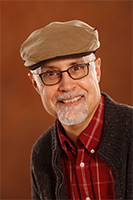
Alan Gumm, professor of music education at Central Michigan University in the U.S., has authored theories of conducting functions and music teaching style, and methods for speechless rehearsals, multisensory vocal/choral techniques, and analysis of dynamic musical expression. His conducting experience includes many U.S. and European choir tours and clinics for choirs and small ensembles of all ages. Dr. Gumm has previous experience in public schools in Kansas and in higher education in Utah, New York, and Kansas, and has been recognized with numerous awards for teaching excellence.
|
| Saturday, 8.30 |
| Clare Guss-West: Attentional Focus – Complementary Techniques to Enhance Training and Performance |
| European Network for Opera & Dance Education, RESEO, Brussels, Belgium |
|
The practical application of attentional focus research to dance and performing arts training has multiple advantages. Amongst these are: the maximization of teaching practice effectiveness; a heightened kinesthetic learning, retention and recall; and more efficient movement patterns with minimum muscular effort resulting in enhanced performance.
Clare regularly presents at The International Association of Dance, Medicine & Science and as RESEO dance advisor, she promotes enhanced creative learning in over 80 Opera and Ballet companies throughout Europe. |
| Friday, 12.45 |
| Horst Hildebrandt: Developing Stage Competence by Means of Constructive Feedback and Self-Instruction Techniques |
| SHZM, University of Music and Performing Arts Zurich, Switzerland |
|
In an explicitly constructive atmosphere, we build up a repertoire of solutions for the problems that may come up on stage. This includes dealing with “stage fright” and its possible consequences, such as inhibition of expression, shaking, dryness, sweating, respiratory blocks, tension, “black-outs” etc. One main focus is on physiologically meaningful self-help techniques in relation to breathing, posture, movements and mental focus.
|
| Friday, 17.00 |
| Costas Karageorghis: Never the twain shall meet or cut from the same cloth? Facilitating Artistic Performance with Psychological Interventions from Sport |
| Brunel University London, UK |
|
This workshop is designed to bring techniques from applied sport psychology into the realm of performing arts. The first part covers techniques aimed at bolstering self-confidence and self-efficacy, including specific forms of positive self-talk, recreating the 'winning feeling' and the Spotlight of Excellence. The second part examines intervention techniques that address anxiety and performance-related stress such as Mental Preparation Profile, active and passive relaxation techniques, and plans for coping with adversity. The third part is devoted to the presenter's specialist field of scientific endeavor: music-related interventions in the pre-performance phase. Participants are asked to bring a personal music player (e.g., an iPod or a smartphone) to facilitate their engagement in the workshop.
|
| Saturday, 11.20 |
| Horst Lutz |
| Ebenhausen, Germany |
|
|
| Saturday, 8.30 |
| Klaus Rom: How to CHANGE a Human Being – A (W)Holistic Training Philosophy |
| Karl-Franzens University Graz, Austria |
|
There are countless methods in sports training and the musician’s rehearsal ritual. The Internet delivers 878 million hits on “sports training” within seconds. The sheer quantity of this information suggests that we already know everything there is to know about how to change our bodies. But surveys show, that not all of this knowledge is helpful, and not every method works properly. Maybe we do not need more methods, but to understand the process of training better.
|
| Friday, 12.45 |
| Susan Williams: Practicing Audiation: Experiencing Music as Language |
| Leiden University, The Netherlands |
|
This workshop combines a rhetorical approach borrowed from the 18th century with 21st century science. Participants will explore musical and physical gesture as a way to enhance technique. An external focus of attention has been shown to be of benefit to both sportspeople and musicians for practicing as well as performance. By focusing on musical intention in the form of the gesture, meaning and language of each musical fragment, a musician can allow a more implicit motor learning and motor control to take place. A practical tool to aid this exploration involves practicing audiation: anticipatory auditory imagery is combined with physical gesture, singing and exploring variations of a phrase.
|
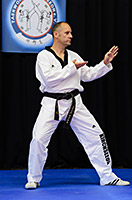 Alex Berghammer, Taekwondo Grand Master, born in Bavaria, started to train at the “TSV Wasserburg am Inn” 30 years ago. Very early on, he represented the club in competitions, earning both success as well as national and international recognition. In 1994, he met the Korean Taekwondo Grand Master Chang Jae Hee (Munich), from whom he learned a great deal. Berghammer is not only a competitor, but also a trainer and a judge, receiving his Master Craftsman Certificate from the Bavarian Taekwondo Union. In 2003, he ended his career as a competitive athlete and has since then dedicated himself to the education of youth, both in schools and organizations. He currently runs his own training club and works as a personal trainer for fitness, self-confidence and meditation.
Alex Berghammer, Taekwondo Grand Master, born in Bavaria, started to train at the “TSV Wasserburg am Inn” 30 years ago. Very early on, he represented the club in competitions, earning both success as well as national and international recognition. In 1994, he met the Korean Taekwondo Grand Master Chang Jae Hee (Munich), from whom he learned a great deal. Berghammer is not only a competitor, but also a trainer and a judge, receiving his Master Craftsman Certificate from the Bavarian Taekwondo Union. In 2003, he ended his career as a competitive athlete and has since then dedicated himself to the education of youth, both in schools and organizations. He currently runs his own training club and works as a personal trainer for fitness, self-confidence and meditation.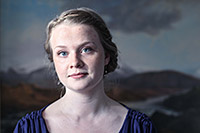 Björg Brjánsdóttir, born in Iceland, is a certified Timani teacher from the Timani Academy in Oslo. She has given weekend courses, private lessons and workshops in Iceland, Norway, Sweden, Germany and Spain. As well as working as a performer and teaching Timani, Björg is a certified meditation teacher. Graduating from the Norwegian Academy of Music in flute in 2016, she has played in various ensembles, taught children for many years and performed as a soloist with the Iceland Symphony Orchestra.
Björg Brjánsdóttir, born in Iceland, is a certified Timani teacher from the Timani Academy in Oslo. She has given weekend courses, private lessons and workshops in Iceland, Norway, Sweden, Germany and Spain. As well as working as a performer and teaching Timani, Björg is a certified meditation teacher. Graduating from the Norwegian Academy of Music in flute in 2016, she has played in various ensembles, taught children for many years and performed as a soloist with the Iceland Symphony Orchestra.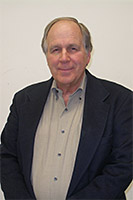 Frank Heuser is Associate Professor at UCLA where he teaches courses in music education and supervises student teachers. He frequently serves as a guest conductor and teacher at the Idyllwild Arts summer music festival. Before his appointment at UCLA, he taught music in public schools in Southern California, at East Los Angeles College, California State University, Los Angeles, and at the University of Oregon. His D.M.A. is from the University of Southern California, his M.M. from Yale University, and his B.A. from California State University, Los Angeles.
Frank Heuser is Associate Professor at UCLA where he teaches courses in music education and supervises student teachers. He frequently serves as a guest conductor and teacher at the Idyllwild Arts summer music festival. Before his appointment at UCLA, he taught music in public schools in Southern California, at East Los Angeles College, California State University, Los Angeles, and at the University of Oregon. His D.M.A. is from the University of Southern California, his M.M. from Yale University, and his B.A. from California State University, Los Angeles..jpg) Clare Guss-West BHum MA is a former professional dancer, choreographer, opera director, holistic health practitioner and author whose focus is on the integration of holistic health principals and scientific research to ballet training for enhanced performance. Supported by the Nureyev Foundation and The European Network for Opera, Music & Dance Education she delivers ‘holistic ballet’™ approach to training for Finnish National Ballet, Ballet de L’Opèra du Rhin, The Royal Ballet, Opèra de Paris-Opèra Université and the RAD Professional Dancer’s Postgraduate in Teaching, Berlin Staatsballett.
Clare Guss-West BHum MA is a former professional dancer, choreographer, opera director, holistic health practitioner and author whose focus is on the integration of holistic health principals and scientific research to ballet training for enhanced performance. Supported by the Nureyev Foundation and The European Network for Opera, Music & Dance Education she delivers ‘holistic ballet’™ approach to training for Finnish National Ballet, Ballet de L’Opèra du Rhin, The Royal Ballet, Opèra de Paris-Opèra Université and the RAD Professional Dancer’s Postgraduate in Teaching, Berlin Staatsballett.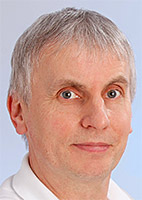 Prof. Dr. med. Dipl. Mus. Horst Hildebrandt studied violin in Freiburg and London as well as medicine in Freiburg. Continuing education in sensori- and psychomotor therapy, Dispokinesis and pain therapy. Member of the Bundesjugendorchester and the Junge Deutsche Philharmonie. Professional activity as violinist in opera and radio broadcast orchestras. First violinist of the Hilaros-Quartet, other orchestras and from 1988 of the Ensemble Aventure Freiburg. 25 years of teaching at music schools as well as lecturer at music universities and for orchestras. Head of the musico-physiological consultation Lahr and the Music Physiology and Musicians` Medicine Sections at the Zurich and Basel Music Universities – main areas: health promotion, psycho-physiological training and research.
Prof. Dr. med. Dipl. Mus. Horst Hildebrandt studied violin in Freiburg and London as well as medicine in Freiburg. Continuing education in sensori- and psychomotor therapy, Dispokinesis and pain therapy. Member of the Bundesjugendorchester and the Junge Deutsche Philharmonie. Professional activity as violinist in opera and radio broadcast orchestras. First violinist of the Hilaros-Quartet, other orchestras and from 1988 of the Ensemble Aventure Freiburg. 25 years of teaching at music schools as well as lecturer at music universities and for orchestras. Head of the musico-physiological consultation Lahr and the Music Physiology and Musicians` Medicine Sections at the Zurich and Basel Music Universities – main areas: health promotion, psycho-physiological training and research.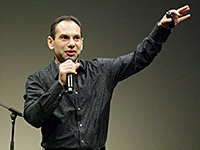 Dr Costas Karageorghis is a Reader in Sport Psychology in the Department of Life Sciences at Brunel University London. He has worked with many UK national governing bodies of sport as a consultant psychologist, as well as with a number of multinational companies that include Nike, Red Bull, Sony, Spotify, Speedo, and the International Management Group (IMG). He is best known for his research and applied work in the area of music-related interventions in exercise and sport. Costas’s scientific output includes more than 150 scholarly articles, ten book chapters, and two textbooks including, most recently, Applying Music in Exercise and Sport (Human Kinetics, 2016). During his spare time, Costas enjoys playing piano in the jazz duo Blue Rondo alongside drummer Joel Shopland.
Dr Costas Karageorghis is a Reader in Sport Psychology in the Department of Life Sciences at Brunel University London. He has worked with many UK national governing bodies of sport as a consultant psychologist, as well as with a number of multinational companies that include Nike, Red Bull, Sony, Spotify, Speedo, and the International Management Group (IMG). He is best known for his research and applied work in the area of music-related interventions in exercise and sport. Costas’s scientific output includes more than 150 scholarly articles, ten book chapters, and two textbooks including, most recently, Applying Music in Exercise and Sport (Human Kinetics, 2016). During his spare time, Costas enjoys playing piano in the jazz duo Blue Rondo alongside drummer Joel Shopland.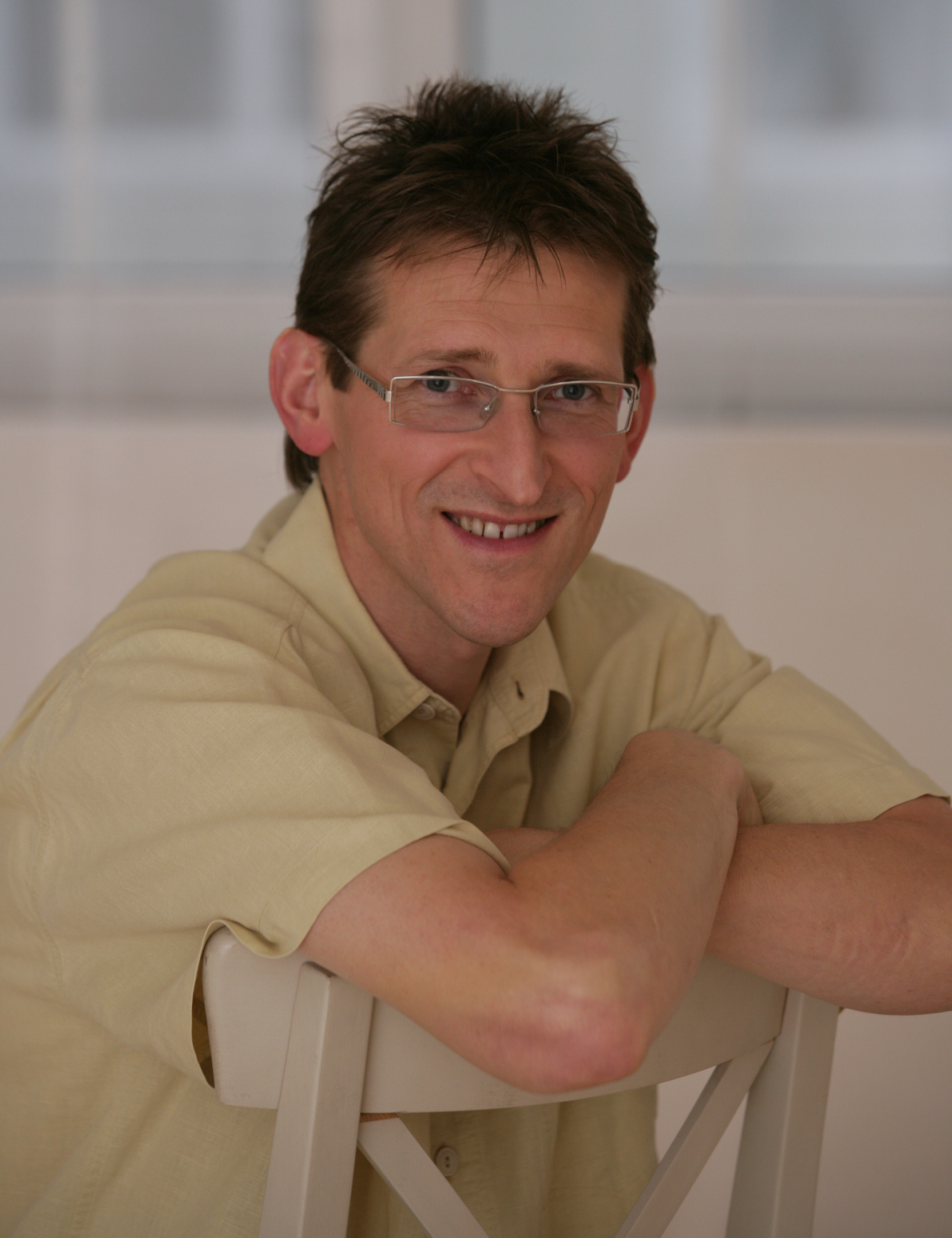 Horst Lutz
Horst Lutz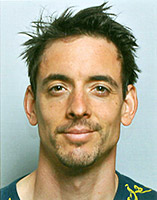 Mag. Dr. Klaus Rom is an experienced athlete and passionate educator. He has teaching degrees in physical education and physics, and received his doctorate in sport science. He has been on the faculty of the Institute of Sport Science at the Karl-Franzens University in Graz, Austria, since 2003 and teaches at a secondary school. The scientific focus of his work is the theory of sports training.
Mag. Dr. Klaus Rom is an experienced athlete and passionate educator. He has teaching degrees in physical education and physics, and received his doctorate in sport science. He has been on the faculty of the Institute of Sport Science at the Karl-Franzens University in Graz, Austria, since 2003 and teaches at a secondary school. The scientific focus of his work is the theory of sports training. Susan Williams as one of the world’s most well known specialists in baroque trumpet and has been performing and recording with many of Europe’s finest early music ensembles since the 1990’s, as soloist, chamber musician and in orchestras. She teaches at the Royal Conservatorium of The Hague as well as the University of the Arts Bremen. In addition to teaching natural trumpet and leading ensemble projects and workshops, Susan is giving courses in practicing and performance preparation in both institutions. Susan’s doctoral research is inquiring into what kind of attentional focus enhances musicians’ skill acquisition and performance.
Susan Williams as one of the world’s most well known specialists in baroque trumpet and has been performing and recording with many of Europe’s finest early music ensembles since the 1990’s, as soloist, chamber musician and in orchestras. She teaches at the Royal Conservatorium of The Hague as well as the University of the Arts Bremen. In addition to teaching natural trumpet and leading ensemble projects and workshops, Susan is giving courses in practicing and performance preparation in both institutions. Susan’s doctoral research is inquiring into what kind of attentional focus enhances musicians’ skill acquisition and performance.





